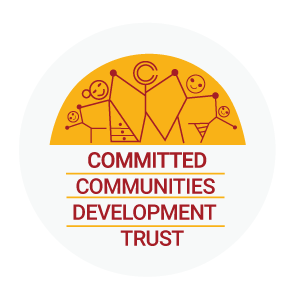CREATING IMPACT - STORIES OF CHANGE
Power of Information
In January 2018, the Pradhan Mantri Matru Vandana Yojana was launched to provide conditional cash benefits to pregnant and lactating women of 19 years or above for the first live birth. Seema Gupta a resident of Bhurikhan Pada enrolled as a Sahyog project member and delivered her baby in October 2017.
As per the criteria for enrolment under the Scheme, Seema was eligible for the benefits. She, however, did not have proper identity proof and address proof. These documents were required to open a bank account to enable cash transfer as a part of the Scheme. The only document available with her was her PAN card and even that was in her pre-marital name, which had changed post-marriage and needed to be updated.
Necessary steps to update Seema’s documents were undertaken, which took around 2 months. With her revised PAN and AADHAR cards in place, Seema’s bank account was opened.
Finally, with all basic documentation in place, Seema applied for enrolment under the aforementioned Government Scheme, and after a month, she was provided with a bank transfer of INR 5000/-, which were due to her as a beneficiary of the Scheme .
Seema’s case is now acting as a ray of hope to other women in the community who are above 19 years of age and having their first child, to enrol in the government scheme but also to get the basic documents required for their identity and enrolment in any programme or scheme.
Good health in our hands
Kavita, a resident of Chunapada Sanjay Gandhi National Park, with a 5 year old son, Pratik, is a member of the Sahyog Project. At around the age of one and a half years, Pratik was identified as a severe underweight (SUW) through the growth monitoring.
To support her son, Kavita joined the Sahyog team as she wanted to understand her son’s malnutrition better and help her son normalize again.
She started attending classes on nutrition demonstration where she understood the importance of various food groups. Earlier she thought being economically disadvantaged, she did not have the resources for providing good nutrition for her son. Attending the demonstration classes helped her to understand that she could provide good and nutritious food for her son, within her limited budget and resources.
Kavita, along with learning about nutrition was also informed about the need for proper sanitation practices that were needed to reap the full benefits of a good, balanced and nutritious diet. As a result of Kavita’s interest in her son’s well being and the support received from the Sahyog team, Pratik today is a normal child with good health.
Kavita is an active member of the Community Based Monitoring Committee and inspires other women in her community with malnourished children to take up the challenge to help their children gain back their health
Celebrating Girlhood
Roshni means light and on International Day of the Girl Child, two rays of light, shone bright from the Sahyog Project.
Under the theme With Her: A Skilled Girl Force, Roshni Kurade from the Plan India supported Sahyog Project took over the Diplomatic Mission from the Swedish Consulate General for the state of Maharashtra. In discussion with Urlika, the Swedish Consul General, over issues of adolescent empowerment, Roshni said, ‘We need to put in more efforts to respect human rights, and women must be represented at all levels of society. We need to work alongside all girls to expand existing learning opportunities, chart new pathways, and call on the global community to rethink how to prepare women for a successful transition into the world of work.’
Elsewhere in another project area of Sahyog, another Roshni, an active member of the Adolescent Group celebrated the theme by taking over the job of an ICDS worker for the day. She conducted pre-school activities with the children and completed the monthly weighing of children up to the age of 5 years, taking due care to note all necessary details.
Bringing girls together from different communities, every year, on International Day of the Girl Child, CCDT celebrates the girls enrolled under their projects and their achievements, in various ways. It has become a part of CCDT tradition to showcase issues of the girl child, using the forum for generating discussion for developmental policies and programme insights to take it to a higher audience
Survival strategies
For Sandeep Chauhan, a nineteen-year-old tribal resident of Sanjay Gandhi National Park, Borivali, challenges to survival are a reality of life. Having lost his elder sister at a very young age to a leopard attack and having himself been a victim of the attack, for Sandeep, having a toilet is not about privacy or hygiene, but it is simply about survival.
He recalls that living in the area surrounded by a forest came with its own set of difficulties, especially for women and children. Lack of amenities meant that the conditions were very unhygienic and young children regularly fell sick with diarrhoea and related illnesses. He remembers his embarrassment in bringing his college friends home and he wanted to change the situation.
In 2015, with CCDT’s help, nine youths from his community came together to put up a street play and enact the social and personal issues associated with the age old unhygienic community practice of defecating in the open. The creative and interactive forum made it possible to initiate discussion and dialogue on the much needed change in the community.
This was the beginning of change for the community as well as for Sandeep and his friends. They went on to advocate with the Forest Dept. for functional and hygienic toilets as permanent constructions are not allowed in forested areas as also asking the Dept. to repair existing non-functional community toilets in their areas. Sandeep and his friends continue with their crusade using street theatre as their weapon to build awareness on other community issues.
Two drops of life
Tulsi, 28 years old, is a mother of two children, with the younger one being 18 months old. She lives at
Navapada under Sanjay Gandhi National Park, Borivili. She is also a Mata Samiti member.
Tulsi works as a domestic help in the nearby areas and as such has very little free time to devote to her children’s health and wellbeing. Due to this limitation, she missed her elder daughter’s immunisation schedule, since her daughter fell sick after immunisation the first time because of which she had to miss going to work. Believing that immunisation would make her child sick again, Tulsi decided to go for immunization only when she would have ample time at her disposal to take care of the child. She was at that time unaware about the benefits and importance of immunisation.
When she joined the Sahyog Project at CCDT, she learnt about the importance of immunisation along with the need for following the immunisation schedule. She also discovered the reason behind the child getting fever after immunisation. This made her realise the need to immunise both her children on time.
Currently as a Mata Samiti Member she not only does her duties very well but now she is a leader in many committees of the Sahyog project. She is an active advocate of immunisation and shares her experience to motivate other mothers to prioritise immunisation of their children over other activities and concerns.

CCDT is proud to be India’s Best Place To Work 2023, which is recognised by Great Place To Work (India)
